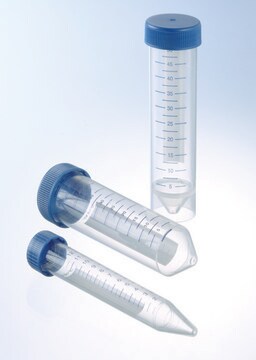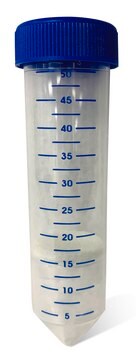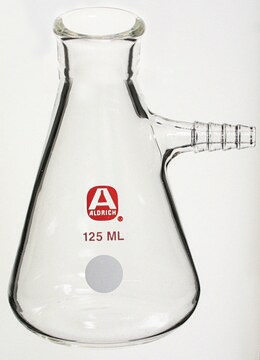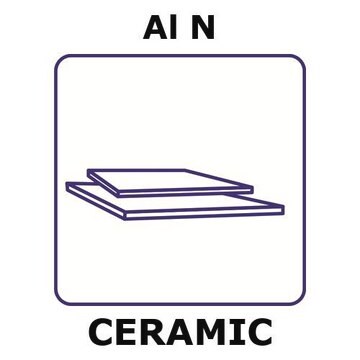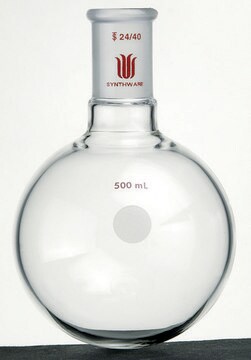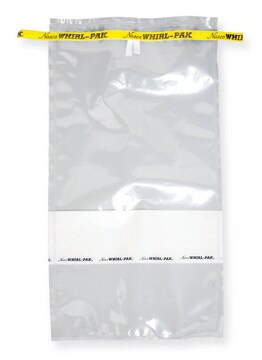HPCT-05-wt
12020703, human kidney, Epithelial
Se connecterpour consulter vos tarifs contractuels et ceux de votre entreprise/organisme
About This Item
Code UNSPSC :
41106514
Source biologique:
human kidney
Mode de croissance:
Adherent
Caryotype:
Not specified
Morphologie:
Epithelial
Récepteurs:
Not specified
Produits recommandés
Nom du produit
HPCT-05-wt, 12020703
Source biologique
human kidney
Mode de croissance
Adherent
Caryotype
Not specified
Morphologie
Epithelial
Récepteurs
Not specified
Vous recherchez des produits similaires ? Visite Guide de comparaison des produits
Origine de la lignée cellulaire
Human proximal tubule cell, kidney, electrolyte transport-competent, SV40 large T-antigen
Description de la lignée cellulaire
HPCT-05-wt was developed from a primary cultures of proximal tubule epithelial cells from a 50-year old male which were infected with a replication-defective retroviral construct encoding wild-type simian virus 40 large T-antigen. Cells forming electrically resistive monolayers were selected and expanded in culture. HPCT-05-wt cells form polarized, resistive epithelial monolayers with apical microvilli, tight junctional complexes, numerous mitochondria, well-developed Golgi complexes, extensive endoplasmic reticulum, convolutions of the basolateral plasma membrane, and a primary cilium. The HPCT-05-wt cell line exhibits succinate, phosphate, and Na,K-adenosine triphosphatase (ATPase) transport activity, as well as acidic dipeptide- and adenosine triphosphate-regulated mechanisms of ion transport. Transcripts for Na+-bicarbonate cotransporter, Na+-H+ exchanger isoform 3, Na,K-ATPase, parathyroid hormone receptor, epidermal growth factor receptor, and vasopressin V2 receptor were identified. Furthermore, i mMunoreactive sodium phosphate cotransporter type II, vasopressin receptor V1a, and CLIC-1 (NCC27) were also identified. The Y chromosome could not be detected in this cell line by short tandem repeat (STR)-PCR analysis when tested at ECACC. It is a known phenomenon that the Y chromosome can be rearranged or lost in cultured cells resulting in lack of detection. The cell line is identical to the source provided by the depositor based on the STR-PCR analysis. HPCT-05-wt will differentiate at confluence when cultured on a microporous support. The cells should be seeded at 105 cells/cm2 on collagen-coated 30 mM Millicell-CM culture plate inserts (0.4 μm, Millipore) at 37 °C. EGF and serum should be omitted from the apical side of the chamber. On differentiation the cells form polarised resistive epithelial monolayers with apical microvilli, tight junctional complexes, numerous mitochondria, well-developed Golgi complexes, extensive endoplasmic reticulum, convolutions of the basolateral plasma membrane and primary cilium.
Profil d'ADN
STR-PCR Data:
Amelogenin: X
CSF1PO: 10
D13S317: 9
D16S539: 11,13
D5S818: 12,13
D7S820: 9,12
THO1: 6,9.3
TPOX: 8,10
vWA: 14,17
Amelogenin: X
CSF1PO: 10
D13S317: 9
D16S539: 11,13
D5S818: 12,13
D7S820: 9,12
THO1: 6,9.3
TPOX: 8,10
vWA: 14,17
Milieu de culture
Stemline® Keratinocyte Medium II (S0196) + Stemline® Keratinocyte Growth Supplement (S9945) + L-Glutamine (G7513) + 5 ng/ml human recombinant epidermal growth factor + 5% FBS / FCS (F2442). An alternative medium formulation can be found in Orosz et al., 2004 PMID: 14748622.
Procédure de repiquage
Split subconfluent cultures (70-80%) 1:3 to 1:6 using 0.25% trypsin/EDTA; 5% CO2; 37 °C. Suggested seeding density 2-4 x 10,000 cells/cm2. Saturation density is approximately 12 x 10,000 cells/cm2. Flasks must be pre-coated with Collagen Type I (C3867) diluted 1:100 with medium without serum. Coating is applied overnight at 37 °C then the flask rinsed with PBS prior to use.
Autres remarques
Additional freight & handling charges may be applicable for Asia-Pacific shipments. Please check with your local Customer Service representative for more information.
Informations légales
Stemline is a registered trademark of Merck KGaA, Darmstadt, Germany
Faites votre choix parmi les versions les plus récentes :
Certificats d'analyse (COA)
Lot/Batch Number
Désolés, nous n'avons pas de COA pour ce produit disponible en ligne pour le moment.
Si vous avez besoin d'assistance, veuillez contacter Service Clients
Déjà en possession de ce produit ?
Retrouvez la documentation relative aux produits que vous avez récemment achetés dans la Bibliothèque de documents.
Notre équipe de scientifiques dispose d'une expérience dans tous les secteurs de la recherche, notamment en sciences de la vie, science des matériaux, synthèse chimique, chromatographie, analyse et dans de nombreux autres domaines..
Contacter notre Service technique